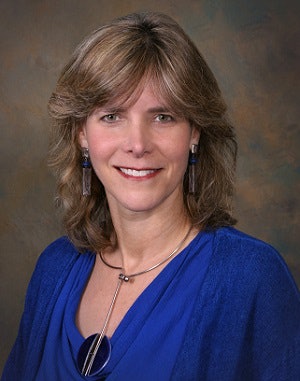Leaders of a landmark study aimed at heightening the focus on family medical history and genetic drivers that put some women at higher risks than others for developing breast disease are ramping up efforts to add Black females to their hoped-for pool of 100,000 participants.
So far, Black women, who tend to be diagnosed later and die more often from the disease than women of other races, comprise 1.7 percent of the 9,195 women who have signed on to the five-year Women Informed to Screen Depending on Measures of risk (WISDOM) study.
 Dr. Laura Esserman
Dr. Laura EssermanThe study’s researchers – at the University of California at San Francisco, North Dakota-based Sanford Health and Color Genomics – hope 10,000 Black women will take part in the study. Participation requires filling out an online questionnaire and then being selected randomly to either get a yearly mammography screening for breast abnormalities or to undergo genetic tests pinpointing breast cancer risks.
The study is examining, among other questions and protocols, how often women should undergo mammography and the extent to which intensively targeted mammography tests, tumor and tissue biopsies and examinations of genes known to fuel breast cancer will result in more life- and cost-saving breast cancer treatments.
The debate over when to begin routing mammography testing and how often women should have a mammography has resulted in women at low risks often spending needless money in such screenings and sometimes being made needlessly anxious. Patients, particularly those at higher risks for breast cancer, and health care providers would be better served by more strategic screenings, including genetic ones, WISDOM researchers argue.
“People automatically are being screened [via annual mammography] for thirty to forty years,” said Dr. Laura Esserman, the UCSF Helen Diller Center on Comprehensive Cancer Care oncologist, surgeon and professor who leads the research. “After 10 years of screening, 50 percent of women have biopsies whose results show that what was tested is benign.
“Who does that help? How much more does it tell us about who’s at risk? How do we do better? It’s important to take the money already in the health care system and repurpose it, and make sure we are learning and improving and not just doing the same thing over and over again.”
Those questions are important for all women, but especially critical for Black women, Esserman’s research team suggests. Deaths from breast cancer have declined overall in recent years, but disproportionately higher numbers of Black women continue to die from the disease.
The latest available data from the federal Centers for Disease Control and Prevention show that between 1999 and 2014, White women had the highest rates of breast cancer diagnoses, followed by Black, then Hispanic, then Asian/Pacific Islander, then Native American/Alaska Native women. But during the same period, Black women had the highest rates of death from the disease. They were followed, in order, by White, Hispanic, Native American/Alaska Native, then Asian/Pacific Island women.
That’s part of the reason WISDOM researchers, in addition to appealing to women of all races to sign up for the study, are especially appealing to Black women to participate. But as of March 2018, according to WISDOM administrators, Black women, followed by Pacific Islander/Hawaiian and Native American/Alaska Native women, were, by race, the smallest groups of study enrollees.
The racial breakdown of the 9,195 study enrollees thus far is 7,469 White women, or 81.2 percent; 789 Hispanic women, or 9 percent; 502 multiracial women, or 5.5 percent; 488 Asian women, or 5.3 percent; 157 Black women, or 1.7 percent; 34 Pacific Islander/Native Hawaiian, or .4 percent and 16 Native American/Alaska Native, or .2 percent. The remainder of enrolled study participants either refused to give their race, were listed as race unknown or didn’t respond to the race question.
The WISDOM team is brainstorming with healthcare providers and advocates in several other U.S. locales as it seeks to broaden the enrollee pool beyond what initially was a project focused on California women, said Kristen Zeitzer, marketing and communications director for Quantum Leap Healthcare Collaborative.
In coming months, Quantum, the nonprofit that UCSF oncologist Esserman founded in 2005 to promote development and sharing of clinical research, will roll out expansion plans.
“We have been reaching out to grassroots and other healthcare leaders to see what else we can do to engage more African American women and encourage them to participate in WISDOM,” Zeitzer said.
“It’s important for us to represent women everywhere and not only women of a particular race or economic subclass,” she said. “In looking at and trying to understand the data and genomics, there will be different risk factors and pieces of the genomic pie, depending on your background and race, that are important to this research. We have to incorporate all of that into our risk modeling. So, we need a variety of women — their rainbow of colors and ethnicities and economic backgrounds, including the LGBQTI community — to participate in this critical work.”



















